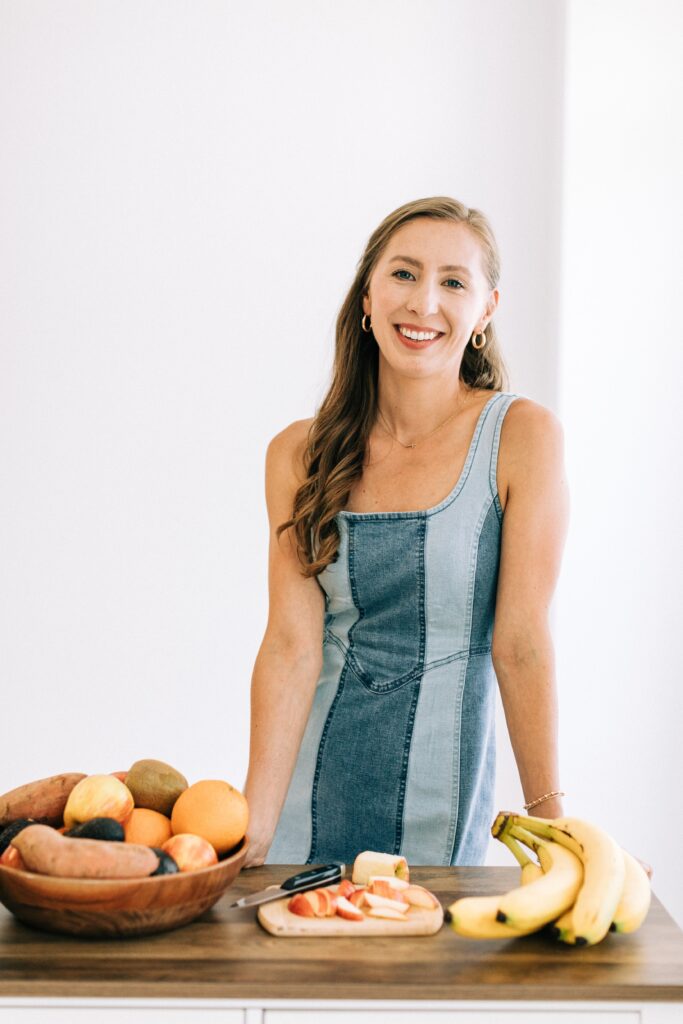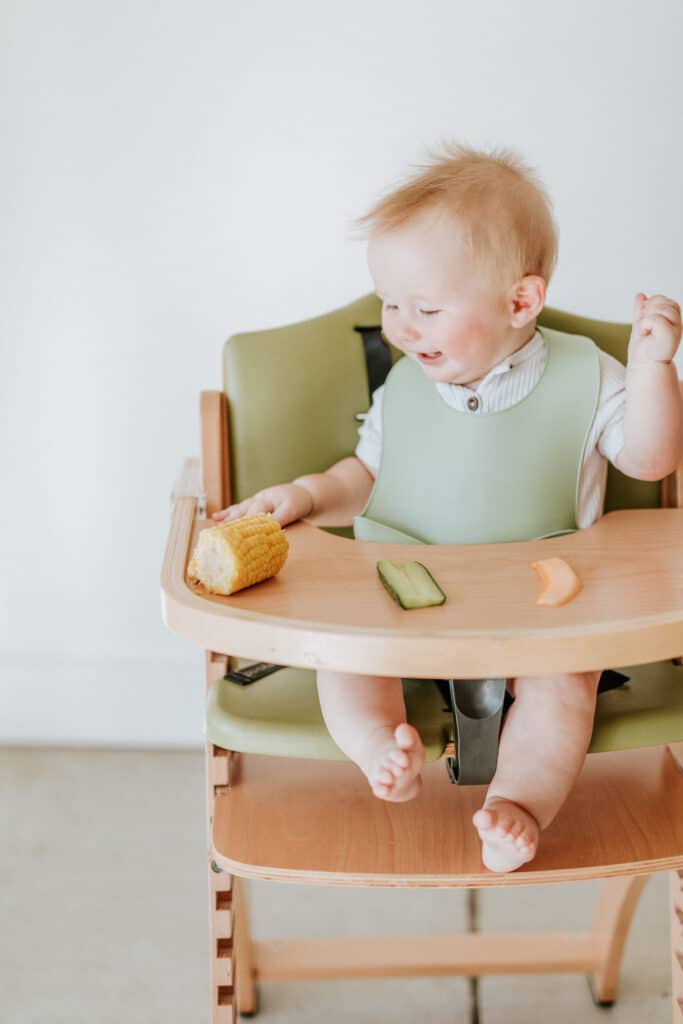
Your no stress, no fuss guide to starting solids
Starting Solids 101 provides all the information you need to start solids in a way that helps reduce the chance of picky eating, texture aversions, nutrient deficiencies, and much more.
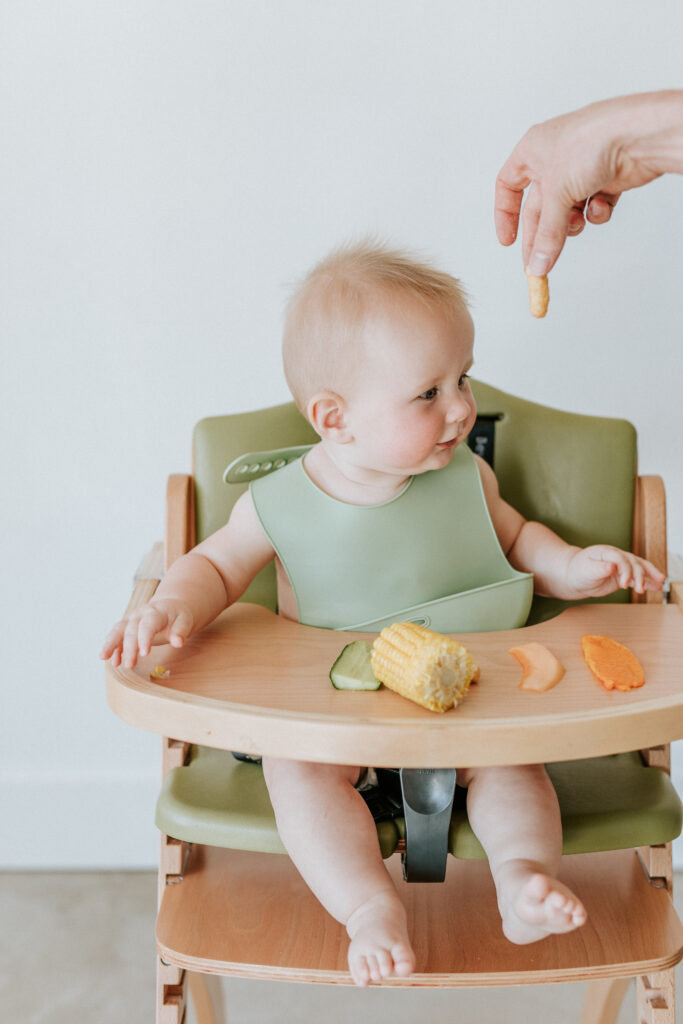
The first 1,000 days of life are pivotal in establishing healthy long-term eating habits.
But that shouldn’t stress you out. With all of the conflicting information from armchair experts on the internet — it’s no wonder moms struggle to feel confident when starting solids. Our self-paced, evidence-based course is designed to demystify starting solids and equip you with the confidence to lay healthy, stress-free foundations with your little one right from the start.
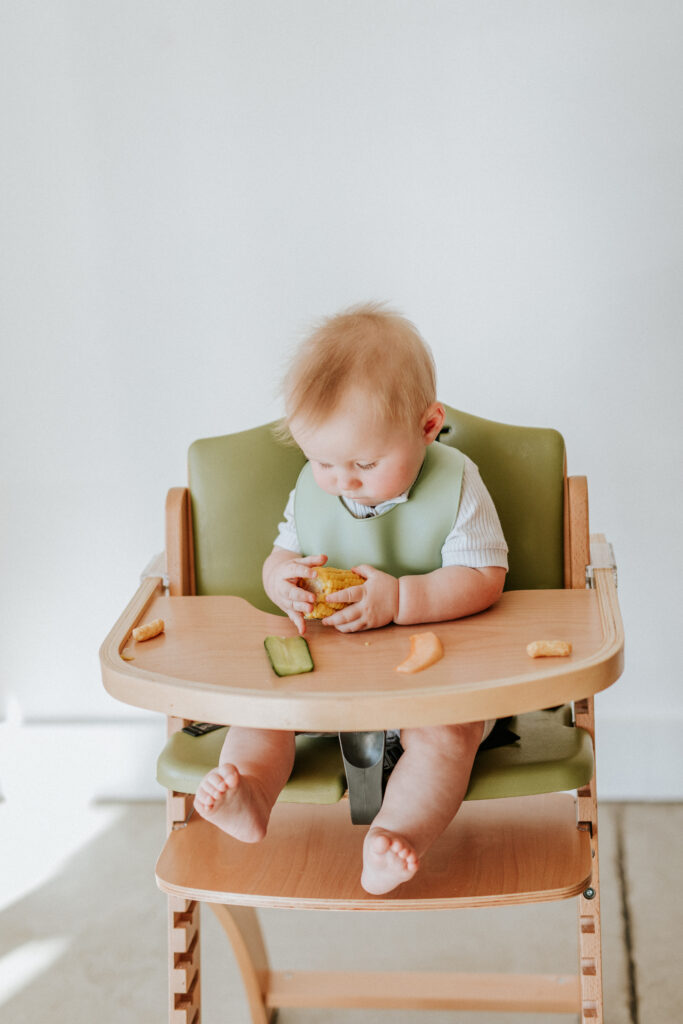
Investment: $80
Module One: Introduction to the Course
Module Two: “When Do We Start?
Module Three: “Why Do We Focus On Every Bite Counts?”
Module Four: Preparing For Starting Solids
Module Five: Unpacking Feeding Methods
Module Six: Learning to Eat
Module Seven: Responsive Feeding
Module Eight: Foods To Focus On When Starting Solids
Module Nine: Let’s Talk Foods to Avoid
Module Ten: Beverages
Module Eleven: Introducing Top Allergens
Module Twelve: Portion Sizes and Meal Schedules
Module Thirteen: Picky Eating
Module Fourteen: Meal Ideas, Product Recommendations, and Recipes
Module Fifteen: Examples of How to Present Foods Based on Developmental Readiness
Module Sixteen: We Made It!
Extra Module: Navigating Holiday Eating with an Infant
Extra Module: Cooking Demonstration
Extra Module: Nutrient Check-Up Sheets
Frequently Asked Questions: How Many Calories Should my Infant Be Consuming?
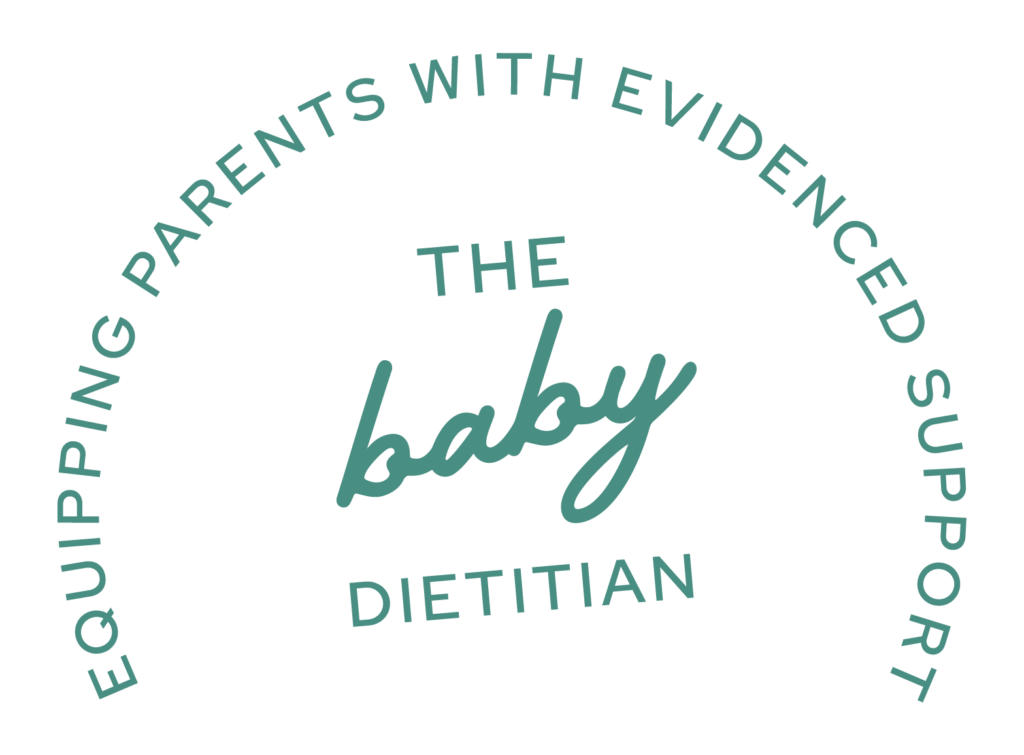
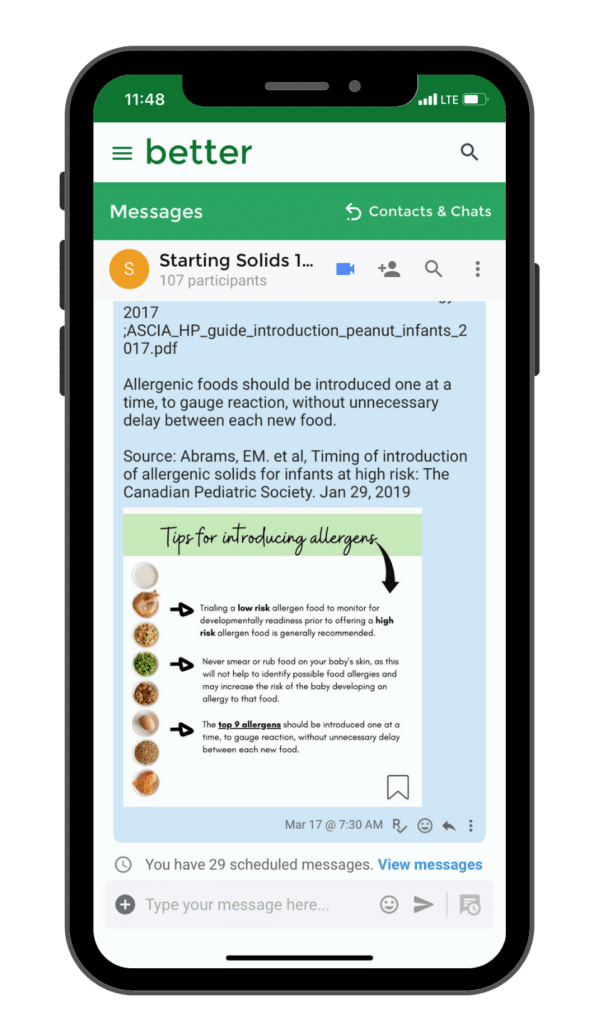
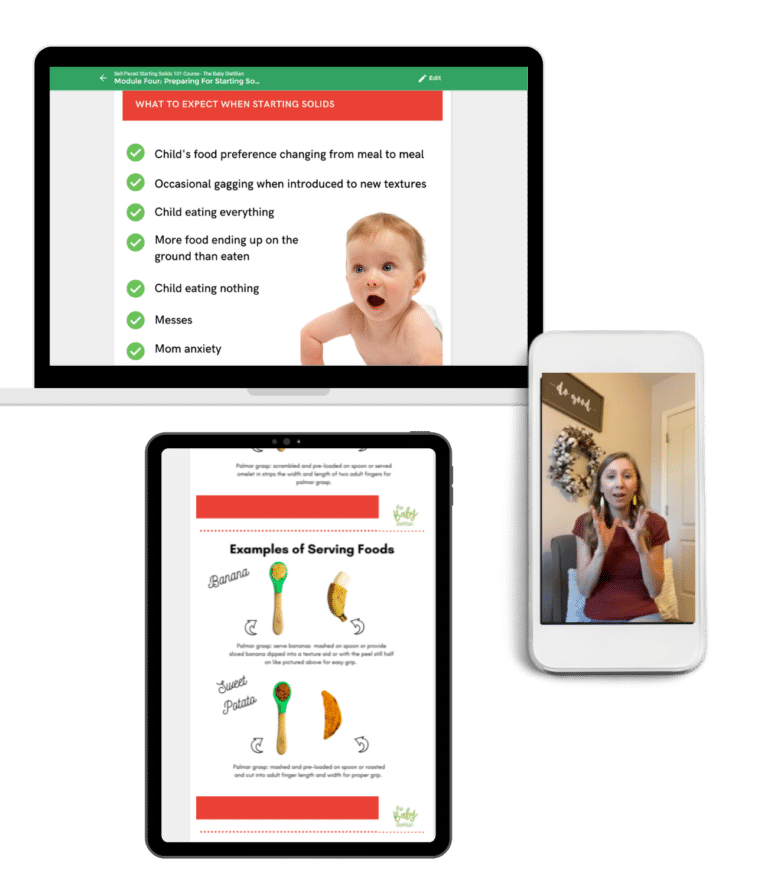
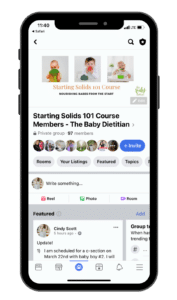
Yes, this course goes through both feeding approaches (purees and baby-led feeding) to provide you with evidence-based support and guidance so you can decide what is the best approach for you and your child.
The course takes about 4-5 hours to complete. Most modules are broken into bite-sized pieces of information that usually range from 1-5 minutes of reading or video content. However, throughout the course there are modules with slightly longer videos from pediatric nutrition specialists who have made a guest appearance to provide valuable insight on specific areas of pediatric nutrition. These include picky eating specialists, speech therapists, occupational therapists, and more! This course is all encompassing and attempts to answer any and all questions you may have surrounding your feeding journey. Feel free to skip through the modules that don’t pertain to your individual child.
My entire career has been devoted to educating and supporting caregivers through breastfeeding, starting solids, and toddler eating. I am a pediatric registered dietitian and international board-certified lactation consultant with over seven years of experience in the field. I graduated from the University of Alabama with a bachelor’s degree in Human Nutrition, and I also completed the Coordinated Program in Dietetics through the University of Alabama. I have worked with hundreds of caregivers in a one-on-one setting to provide individualized nutrition therapy and support for various pediatric nutrition therapy concerns and diagnoses. I am also a mom of two who has walked through my own feeding challenges with my little ones. I know firsthand how overwhelming and frustrating it can be when starting solids, which is why I created this course to include chat access to a pediatric nutrition expert from the comfort of your own home. This course is a labor of love and helps bridge the gap between the overwhelming amount of social media advice available and our infrequent routine appointments to the pediatrician’s office.
From the day you sign up, you have six months of access to the Starting Solids Course. Discounted rates are available if you need additional support after your time has expired. Reminders will be sent through the app to let you know when your course expiration is approaching. As a bonus, as new information becomes available in the field of pediatric nutrition, the course gets updated to reflect those changes. This ensures it meets the requirements to be designated as “evidenced-based”.
This course encompasses hours of pediatric nutrition education and expertise at a rate that is 1/3rd the price of a one-on-one session with a pediatric nutritionist. Simply put, this is an absolute steal of a deal. I offer this course to provide caregivers with the support that every parent should have when starting solids, but unfortunately do not receive. For that reason, this course is priced at an incredibly low rate, given the amount of information and specialized insight you are receiving as a member.
You can email info@thebabydietitian.com at any point after purchasing the course to request a full refund, as long as the course has not yet been accessed. Once the course has been accessed and you have begun reviewing modules, you have 48 hours from the time of registering to let me know of any concerns and to request a full refund. Once a refund has been processed, you will no longer have access to the group, private chat access to the team of clinical nutrition experts, or access to the private Facebook “The Baby Dietitian Starting Solids” group.
Cinthia is a Registered Dietitian (RD) and International Board Certified Lactation Consultant (IBCLC) with over 10 years of experience in pediatric nutrition. She specializes in optimizing nutrition during the first 1,000 days of life to help children grow, thrive, and build the foundation for long-term health.
Cinthia is an author, starting solids expert, and a strong advocate for providing caregivers with evidence-based, practical, and easy-to-implement guidance on breastfeeding and complementary feeding. She is the co-author of 101 Before One: Starting Solids and Baby Leads The Way—the first evidence-based starting solids guide published by the American Academy of Pediatrics.
